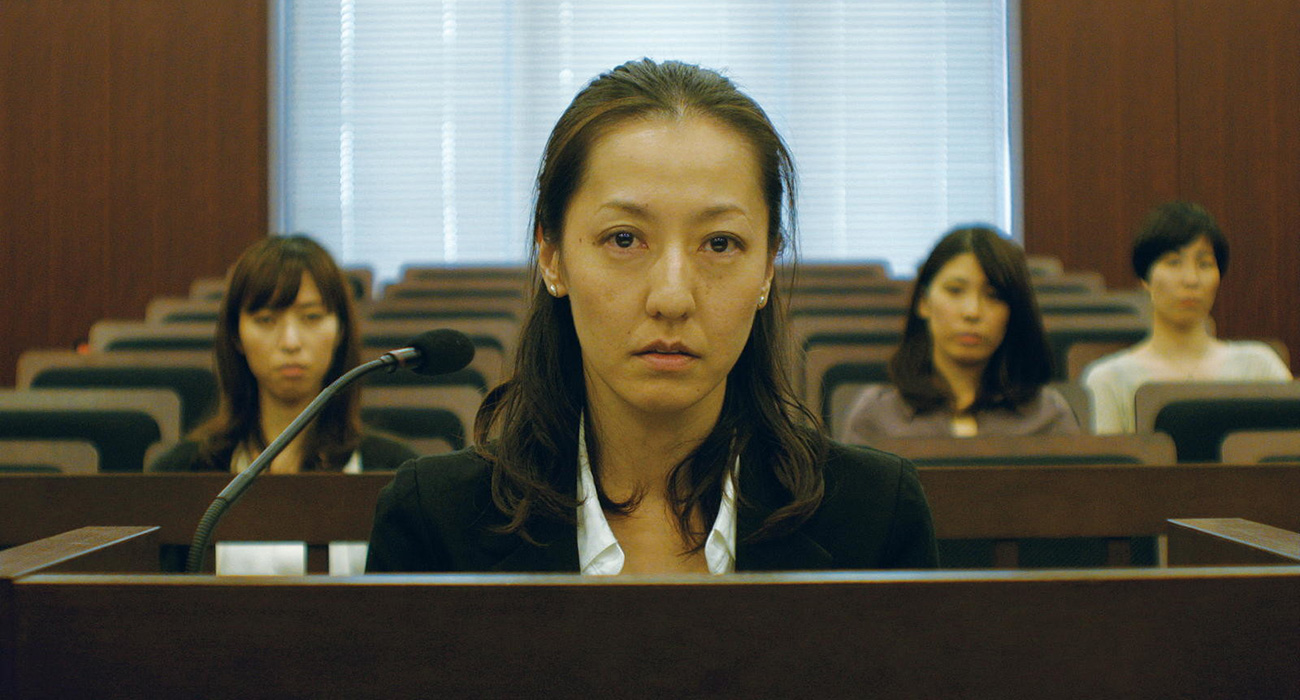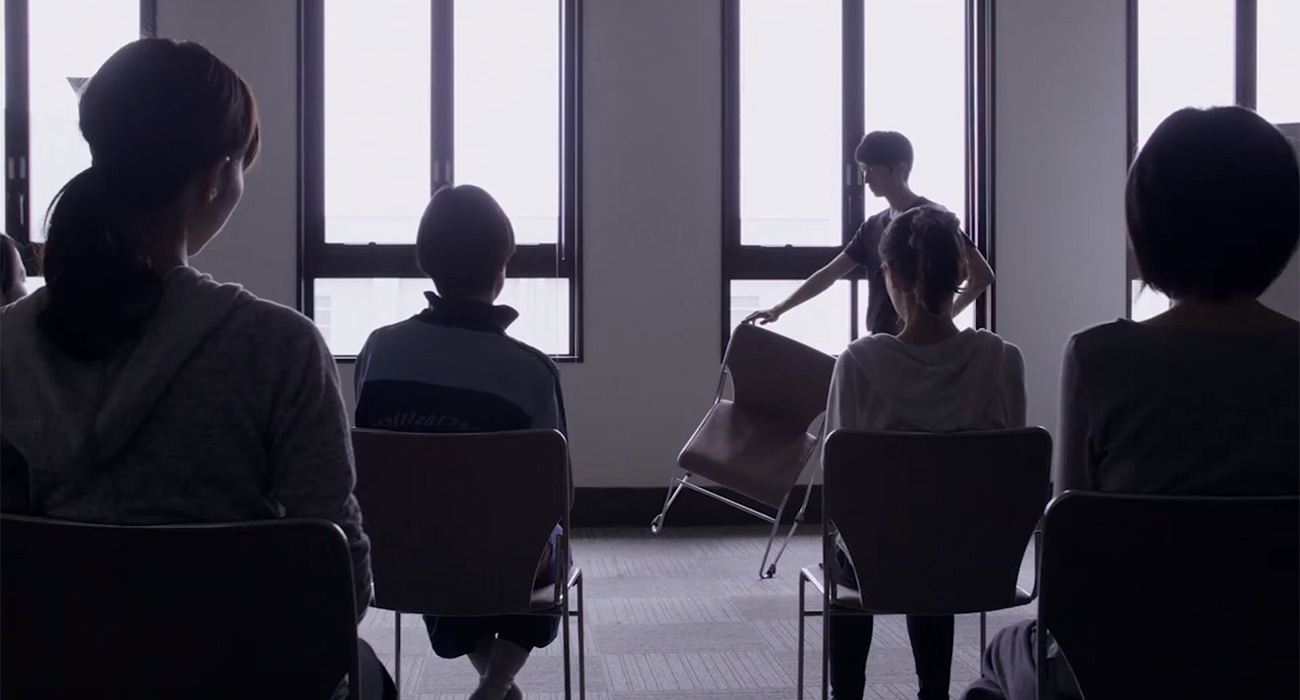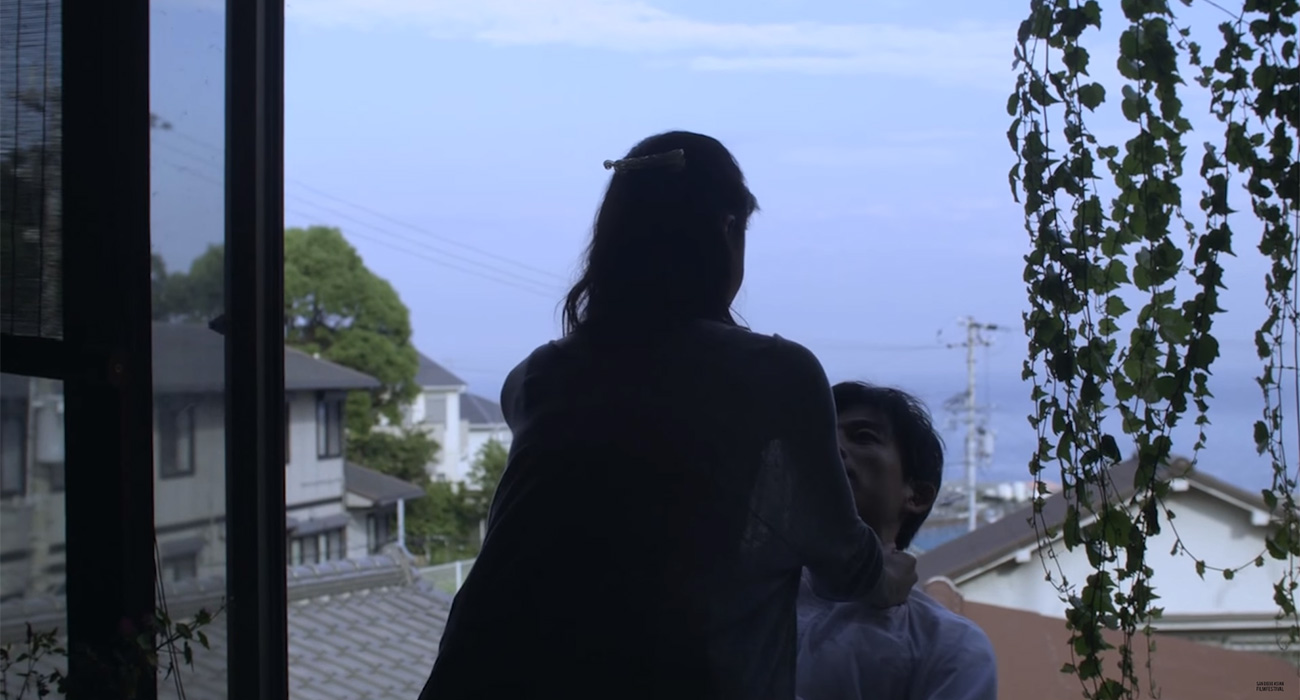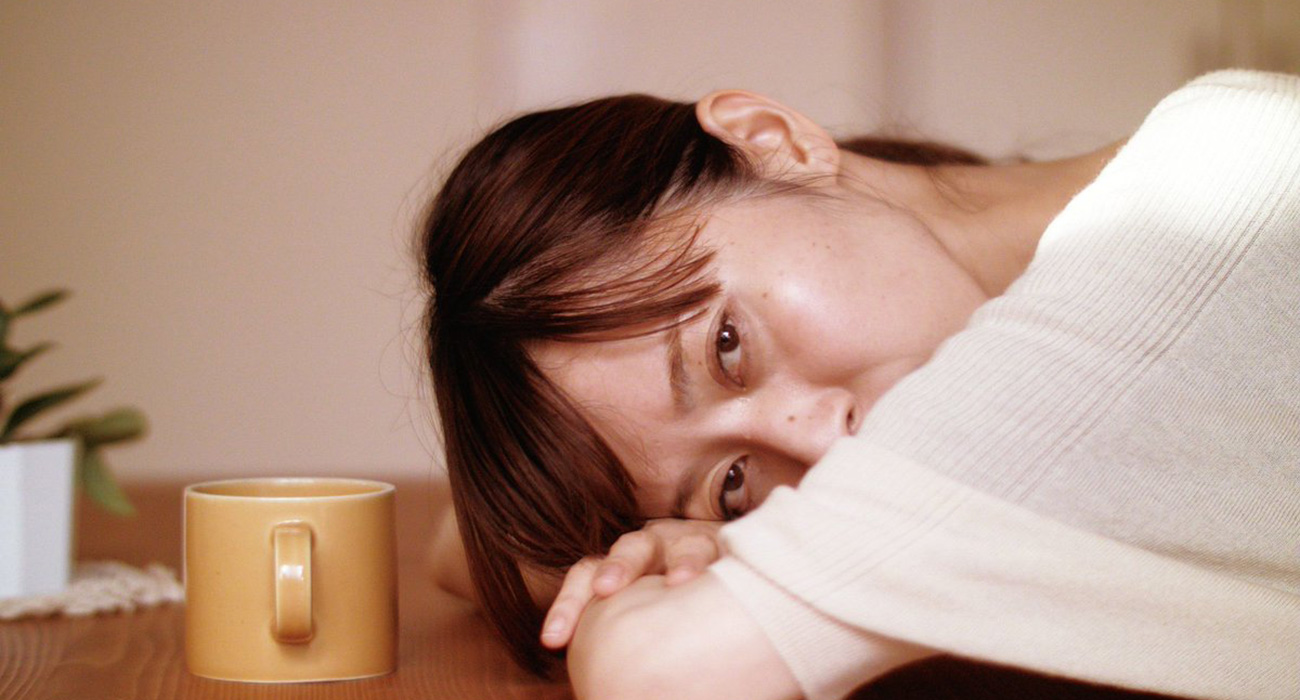Ryusuke Hamaguchi‘s five-hour epic Happy Hour has so far enjoyed a healthy international festival run, travelling to Shanghai, Spain, the United States, South Korea and now finally in Australia where it recently had its Australian Premiere at the Melbourne International Film Festival.
The film stars a cast of unknown actors and focuses its attention on four women in their late 30s; friends who each have their own crossroads ahead of them. When one of these women, Jun (Rira Kawamura), reveals that she is embroiled in a legal battle to divorce her husband, this news slowly begins to work its way into the lives of the three other friends, Akari (Sachie Tanaka) , Sakurako (Hazuki Kikuchi) and Fumi (Maiko Mihara).
A slow-burn drama, the ambitious film has also won awards for Best Actress at the Locarno International Film Festival (where the film had its World Premiere and was awarded collectively to all four leading women) and Best Director at the Singapore International Film Festival (Asian Feature Film Competition).
Filmed in Ether’s Hieu Chau and Natalie Ng chat about Hamaguchi’s latest below.
———
Hieu: So we both had a different attitude towards Happy Hour and your experience with it was a more positive one than mine.
Natalie: I was thinking that maybe my opinion of the film was more positive because of how much it accurately reflected the inner lives of women, and at such an indulgent runtime at that, and we rarely get that in cinema at all, so I was willing to overlook some of its flaws.
Hieu: It is nice that we do get to have an entire focus on women for such a sustained period of time though I do question whether the length of the film was necessary. I think that was the biggest thing for me to overcome and I think it could be the same for anyone else going in. I’d be interested to know why Hamaguchi decided five hours was necessary.
Natalie: I’m not sure what his intentions were, but I thought the format/runtime was very current, in our age of binge-watching, but at the same time it functioned as a whole. I wonder (and suspect it would) if cutting it up as a television format would compromise the way the story worked as a whole.

Hieu: I’ve actually heard that the film might have been cut into halves or parts for some film festivals and local screenings in Japan and as I was watching Happy Hour, I couldn’t quite find parts in the film that you could cut as a mini-series. Certainly there were many scenes that could’ve been cut entirely for a more trim film but as an episodic thing, it’s really difficult.
Natalie: That’s what I felt too. Television and the episodic format is that way for a reason where each episode functions within itself as a narrative. Ingmar Bergman‘s Fanny and Alexander for example was released as a television four-parter and it does lose some of its pace in that format. That said, I did find the film losing steam in several scenes that I felt dragged on for way more than necessary.
Hieu: Certainly. For me, Happy Hour was great in terms of its parts but as a whole I couldn’t quite latch onto it. There are some really strong moments here and I really dig Hamaguchi’s fly-on-the-wall approach. It’s very observational and I really enjoyed just watching these long conversations around relationships and marriages unfold. I think that particular type of approach is quite unique to Japanese cinema.
Natalie: I agree, that observational approach is very key to what was great in the film and also in Japanese slice of life cinema. For Happy Hour, I think it allowed for the slow disintegration of the relationships to be explored more fully. Shall we talk about several of the key scenes? And also the ones that we felt were dragging on? I know you and I disagree about the workshop scene in the early part of the film.

Hieu: That workshop scene in the film was quite interesting to me cause it felt like a way for Hamaguchi to talk to the audience and tell them to abandon all pretense of how to engage with this film. And even beyond that, I think the scene also helps to establish early on the roles of each woman in the film and what they want — you see later on how this plays out in their lives afterwards. It might have seem strange or out of place but I think that entire section had a great purpose in establishing these characters.
Natalie: I think that scene was strange and funny and helped to set up the relationships and personalities of the characters, as you said, but at the same time, like all the scenes that I thought dragged, it was more of an editing issue. I think I felt that the scene was overlong, just as I did with the other three key scenes that I felt dragged: the book reading scene, the post book reading dinner and Akari at the club. Every scene in the film felt purposeful and important, but I questioned the length, and whether how much of it was necessary to illustrate the point. Definitely though, the workshop scene did set up the major themes of the film: emotional intimacy and communication.
Hieu: Yeah, a lot of those scenes really did drag. I don’t think I wanted to hear all of that short story but she just kept going! How did you feel about the look of the film? Its presentation and cinematography?
Natalie: I was fascinated by the way Hamaguchi used static shots and direct shots with the characters. Like in the first dinner scene after the workshop, where Jun reveals her divorce, as well as the “introduction” scene at the spa resort. It wasn’t even interview style, but rather, direct eye contact with the characters that felt very confrontational and intimate. You almost felt uncomfortable to be so up close and personal with these characters.

Hieu: That shot with Jun revealing her divorce was really nicely employed too as it just drove home the point that this information was VERY important and that it would eventually serve as the catalyst for change for every other woman.
Just going back to the workshop scene and some of the conversations in the film, so much of that look and feel reminded me of the films of Hiroshi Ishikawa, which also deal with women and fragile relationships. The workshop stuff which was rendered in blues and shadows was really reminiscent of Ishikawa. And some of it also reminded me of Lee Yoon-ki‘s Come Rain, Come Shine too, for better or for worse.
Natalie: That goes really nicely with my favourite scene actually, which was the scene of Jun and her husband in her hilltop apartment, where they rendered Kohei entirely in shadow and the whole scene was a mix of blues and greys and shadows. Making Kohei so anonymous and in shadow felt like Hamaguchi was deliberately dehumanising him.
I thought that the other husbands fared only slightly better in terms of how they were presented but also it was fair, since one of the themes was also about how Japanese society does not encourage men to deal with their emotions and have left them emotionally repressed and stagnant. So I did feel some sense of sympathy for Takuya and Yoshihiko, but more for the fact that they were products of society. What did you think of the portrayal of the husbands and one of the biggest ciphers of the film, Ukai?
Hieu: I thought Ukai was just going to be this strange, enigmatic comedic relief and we wouldn’t hear from him again. How wrong I was! To be honest, I didn’t think much of the husbands though I can see why they might be way they are because society programs them to respond that way. I was much more concerned about the women in the film who were all great. Their collective Best Actress award at Locarno feels deserved. I dunno why but everytime I saw Jun, I got flashes of Setsuko Hara.
Natalie: I think Ukai still was very enigmatic in the end, he felt like someone who pushed the buttons of the women but never really had any sort of agenda. I didn’t think much of the husbands either but I think it was good of Hamaguchi not to demonise them. The main focus of course was the women, their relationships and friendships with each other. Scenes like the one in the resort where they played mahjong and the cafe scene were really special.
When Sakurako points out to Akari how judgmental she can be which results in people not confiding in her, that was an amazing moment considering how much Sakurako bottles up.

Hieu: So I guess to wrap things up, what made Happy Hour resonate for you?
Natalie: Well probably it would have to be the accuracy in the way it depicted friendships, relationships and marriage. And the way that most of the time the way we kill a relationship is through failure to communicate which leads to neglect, more than infidelity or anything ‘shout-y’. Even though the film was very melancholic as it went on, there were certain shards of hope, like the hope that Sakurako would communicate better with her son, or that Fumi might be able to save her marriage.
The ripple storytelling effect was also more true to life than anything big and dramatic. Those ripples accumulate over time and like the film shows, their effect is far more devastating in the long run than a shocking moment.
Hieu: Which again I think tells you a lot about what slow slice of life Japanese dramas are. They’re not everyone’s cup of tea but the end result can be extremely rewarding. This one however was just a bit too slow and long for me to fully latch onto.
Natalie: It definitely isn’t everyone’s cup of tea. Hamaguchi had to justify that running length and he didn’t quite get there. Still, I hope more people see the film and discuss it.
Hieu: I came into Happy Hour getting exactly what was promised – a lengthy feature about four female friends and their relationships with each other and everyone else. The execution wasn’t perfect but it at least often had some purpose.
